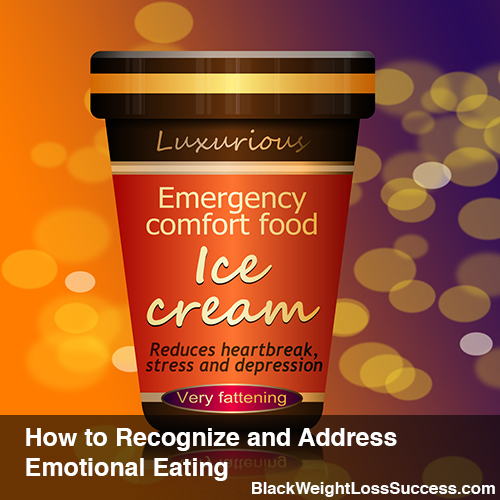 There are two types of hunger: physiologic hunger and hedonic hunger.
There are two types of hunger: physiologic hunger and hedonic hunger.
Physiologic hunger occurs when we’ve not eaten for a period of time- our stomachs are empty, and our bodies respond accordingly, asking us for fuel with hunger cues- a sense of emptiness, a rumbling of the stomach. Physiologic hunger and physiologic hunger cues are regulated via hormones that tell us when we are hungry and when we are full.
Hedonic hunger occurs in response to an external food cue- when we see or smell something that we consider to be highly desirable: smelling french fries when passing by a fast food restaurant, and instantly desiring french fries, even in the absence of physiological hunger/a need for food and calories.
Hedonic hunger encourages us to eat out of desire or emotion unrelated to true caloric need. Physiological hunger encourages us to eat because of a caloric/nutritional need and a hormonal response that tells us it’s time to eat: our blood sugar is declining, our bodies have digested the last bit of our last meal.
Hedonic Hunger Leads to Emotional Eating
Basically, one is mental and about desire and the other is about a true physical need. Many people attribute their weight gain to Hedonic hunger which leads to Emotional eating.
Emotional eating typically occurs in response to stress or boredom. We eat hedonically, out of desire for stimuli to take the feelings away. In high-stress scenarios, cortisol, the stress hormone, urges us to eat hedrnically. This is a leftover evolutionary response from our time as scavengers on the savannah, when a high-stress situation typically implied starvation.
In our modern world, ripe with readily accessible, high-Calorie foods, that leftover evolutionary response is one that is frustrating, and ultimately disadvantageous to our success on the scale. Bottomline, our bodies are built for survival and our lifestyles are triggering a response that is meant to keep us from dying of a lack of nutrients and food.
Given our multi-layered relationships with food, identifying and addressing emotional eating can be difficult. Food is connected to our personal relationships, celebrations and it’s used as a drug to self medicate the pain away.
Often, we fail to recognize that we aren’t truly hungry when we’re eating or drinking; rather, we sip a latte out of habit, or snack in front of the TV. It’s very easy for our eating habits to become patterns and override our sense of physiological hunger, which, over a period of time, leads to an increase in our beltlines.
Addressing Emotional Eating
In order to successfully address and then counteract our drive to eat in the absence of hunger, we must first consider why the negative food behaviors are happening in the first place: are we eating oreos because we’re bored, and the oreos just taste good? Or are we eating the oreos because they make us feel good and imbue a sense of comfort after a stressful day, week, or month?
Although eating out of boredom, eating for pleasure and stress eating have overlapping behavioral tendencies, the cause/source of these behaviors are starkly different.
Addressing emotional eating is a more complex issue, one that may require the help of a dietitian, therapist or psychologist. For many patients, binge eating disorders underlie stress eating patterns, with patients eating with a sense of abandon, often in private or in late evening hours.
Addressing boredom-driven eating can be difficult, but can typically be done without the help of a secondary party. Simply removing tempting foods and beverages from your home or “trigger space” solves part of the issue, as does creating and sticking to a meal or snack schedule. If a food or beverage (other than water) is outside of that schedule, refrain from consuming it. If you are bored, you have to start reacting to that feeling with behaviors that don’t include food, like exercise, calling a friend, reading a book, saying a mantra, prayer, etc.
If you eat out of stress, you must address the underlying cause of that stress: typical triggers include personal relationships with family or friends, work duties, lack of time, a perceived lack of control, past trauma, depression, anxiety, or other emotive trauma or disturbance that you have yet to deal with.
In order to develop healthier coping mechanisms, you must address and heal from the trauma or more appropriately address the source of your underlying stress. For example, this may mean asking for help from family and friends who can help share scheduling burdens so that your “to-do” list doesn’t become a negative source of pressure, thus eroding your mental and physical health.
It’s vital that you developing healthy coping mechanisms to replace a cycle of stress or binge eating. Although it may sound cliche, exercise, meditation, journaling, prayer, watching a television show, reading, or quietly reflecting can all help reduce stress. Perhaps the most potent means of reducing stress is to talk through your fears, anxieties, and stressors with an unbiased third party, such as a psychologist, counselor, or friend unrelated to the source of your stress.
Recovering from a past of emotional eating and poor food habits can be difficult. Be patient with yourself, and be forgiving. Learning to treat yourself and your emotions with care and kindness is a process, one worthy of your first step.
Here are some books that can help you as you begin to create new strategies to deal with emotional eating.
*Amazon Affilate

Comment Via Facebook